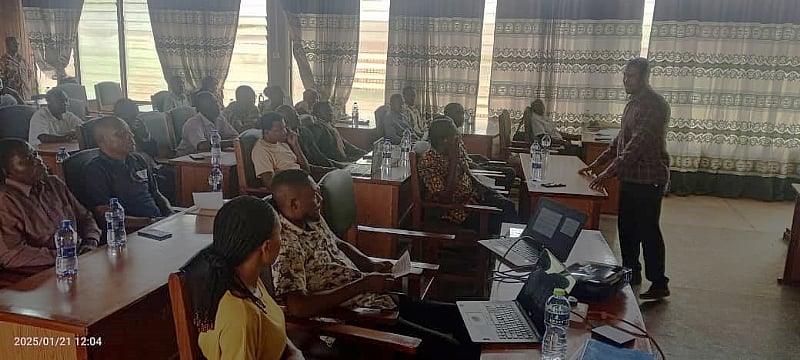Livelihood and Environment Ghana (LEG), a Sunyani-based non-governmental organization focused on human rights and environmental issues, has proposed amendments to the Minerals and Mining (Compensation and Resettlement) Regulations, 2012 (L.I. 2175) in Ghana. These proposed amendments aim to improve the current compensation framework for communities affected by mining activities, benefiting the government, mining companies, and, most importantly, the displaced individuals and landowners. LEG argues that the current system, which often involves a single, lump-sum payment, is inadequate and leaves many farmers worse off in the long run. Their advocacy work, supported by the Third World Network-Africa, seeks to create a fairer and more sustainable compensation system that ensures long-term well-being for affected communities.
The core of LEG’s proposal centers around the concept of lifetime compensation. Instead of a one-time payment, LEG advocates for ongoing compensation distributed throughout the lifespan of the mine. This approach recognizes that the impacts of mining, such as land loss and environmental disruption, continue long after the initial displacement. A continuous stream of compensation would provide a more sustainable source of income for affected communities, enabling them to adapt to the long-term changes brought about by mining operations. This model contrasts sharply with the current practice, where many individuals who received one-time payments have seen their living conditions deteriorate over time. LEG argues that this long-term perspective on compensation is crucial for ensuring the equitable distribution of mining benefits and mitigating the negative socio-economic consequences of displacement.
LEG’s proposed amendments also emphasize the importance of fair negotiation processes. They encourage farmers and landowners to seek expert advice before accepting compensation offers from mining companies. This ensures that individuals understand their rights and can negotiate effectively for fair and adequate compensation. This advice acknowledges the power imbalance often present in negotiations between large mining corporations and individual landowners. By empowering individuals with knowledge and expert support, LEG aims to level the playing field and ensure that compensation reflects the true value of lost land and livelihoods. This emphasis on informed negotiation is critical for protecting the rights of vulnerable communities and preventing exploitation by powerful mining interests.
The rationale behind LEG’s advocacy stems from the observation that while mining is often touted as a driver of economic development, its benefits are not always equitably shared. Mining communities in Ghana, and across many African countries, often experience significant social and environmental disruption without experiencing a corresponding improvement in their living conditions. LEG argues that the current compensation system perpetuates this inequity, leaving displaced communities struggling to adapt to the loss of their land and livelihoods. Their proposed amendments seek to address this imbalance by ensuring that communities receive a fair share of the benefits generated by mining activities.
LEG’s engagement extends beyond proposing amendments. They have actively engaged with political party representatives in the Asutifi North District, a region significantly impacted by mining, to gather input and build support for their proposals. This participatory approach underscores their commitment to inclusive and democratic policymaking. By involving local stakeholders, including political leaders, LEG aims to create a more representative and effective compensation framework. This collaborative approach also strengthens the likelihood of successful implementation, as it fosters buy-in from key decision-makers and those most directly affected by the regulations.
LEG, as a national research and advocacy organization operating across seven regions in Ghana, brings a wealth of experience and expertise to this issue. Their work focuses on promoting environmental sustainability, community rights, sustainable livelihoods, active citizenship, and good mineral governance. They engage with a wide range of stakeholders, including policymakers, government officials, and corporate organizations, to advocate for responsible mining practices and ensure that communities benefit from resource extraction. Their proposed amendments to the Minerals and Mining Regulations represent a crucial step towards achieving a more equitable and sustainable mining sector in Ghana, one that respects the rights and livelihoods of affected communities. Their advocacy work highlights the importance of ongoing dialogue and policy reform to address the complex challenges associated with resource extraction and development.


